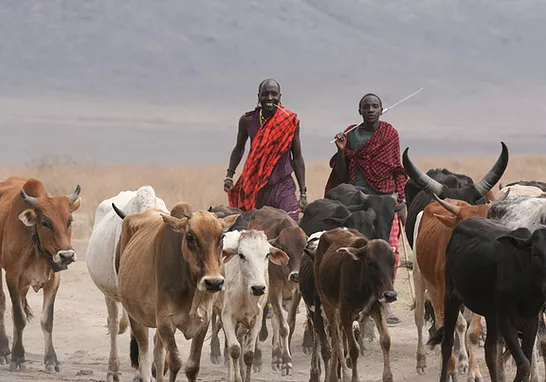Community Support and Conservation Initiative

Overview
The Community Support and Conservation Initiative under the Endangered Species Conservation Foundation (ESCF) is designed to integrate local communities into the heart of conservation efforts. Recognizing that the long-term success of wildlife protection is deeply tied to the well-being and engagement of communities living near conservation areas, this initiative focuses on creating sustainable livelihoods, raising environmental awareness, and fostering a positive relationship between people and nature. By empowering communities, ESCF aims to reduce human-wildlife conflict, promote sustainable development, and ensure that conservation efforts are community-driven and mutually beneficial.
Objectives
- Sustainable Livelihoods: Provide alternative, eco-friendly income sources for communities, reducing reliance on activities that harm wildlife and ecosystems.
- Education and Awareness: Educate local communities about the importance of biodiversity, endangered species, and the long-term benefits of conservation.
- Human-Wildlife Conflict Mitigation: Develop strategies to reduce conflicts between wildlife and local populations, particularly in areas prone to crop destruction or livestock losses.
- Community-Led Conservation: Empower communities to lead conservation activities, from monitoring wildlife to managing natural resources.
- Infrastructure Development: Support the development of essential community infrastructure, such as schools, health facilities, and water systems, tied to conservation efforts.
- Key Activities
- Eco-Tourism and Conservation Enterprises: Promote and support the development of eco-tourism ventures, such as guided safaris, wildlife lodges, and cultural tourism, creating jobs that depend on healthy ecosystems. Establish community-run businesses focused on wildlife-friendly products, such as crafts, honey, and sustainable agriculture.
- Education Programs: Implement educational programs in schools and communities to foster an understanding of conservation. These programs will include workshops, environmental clubs, and training sessions on sustainable practices like organic farming, wildlife monitoring, and eco-friendly resource management.
- Human-Wildlife Conflict Solutions: Introduce practical solutions to mitigate human-wildlife conflict, such as constructing beehive fences, chili pepper barriers, and reinforced livestock enclosures. Provide training and resources for community wildlife rangers who can respond to wildlife incursions.
- Community Conservation Groups: Establish and support local conservation groups that are trained in wildlife monitoring, habitat restoration, and anti-poaching efforts. Encourage community involvement in reforestation projects and protecting water sources.
- Infrastructure and Health Initiatives: Invest in community infrastructure, such as building schools or health clinics, that also serve as centers for environmental education. Improve access to clean water and sanitation, demonstrating the benefits of sustainable resource management.
Expected Outcomes
- Economic Empowerment: A significant increase in eco-friendly livelihood opportunities, reducing the need for poaching, deforestation, or unsustainable farming practices.
- Greater Community Awareness: Enhanced environmental literacy and stewardship within local communities, leading to a deeper commitment to conservation goals.
- Reduced Human-Wildlife Conflict: Fewer incidents of wildlife-related crop destruction or livestock loss, resulting in improved coexistence between people and wildlife.
- Active Community Participation: Communities actively leading and participating in conservation activities, contributing to habitat restoration, wildlife monitoring, and anti-poaching patrols.
- Improved Community Well-being: Better living conditions, access to education, and health services, improving overall quality of life while strengthening ties to conservation efforts.
Impact
The Community Support and Conservation Initiative will create lasting, positive change for both people and wildlife across Tanzania. By empowering local communities, ESCF ensures that conservation is not only about protecting animals and ecosystems but also about improving human lives. The initiative bridges the gap between wildlife protection and human development, making conservation a shared responsibility that benefits all.Long-Term Vision
By working hand-in-hand with communities, the ESCF aims to build a future where wildlife thrives alongside vibrant, sustainable human settlements. Local people will be the stewards of their natural heritage, safeguarding Tanzania's wildlife for generations to come while enjoying the socio-economic benefits of conservation. Through this project, the harmony between nature and humanity will be restored, ensuring the health and prosperity of both. Join Us Now!- Make A Donation. Voluteer. Spread the word. Participate Now!